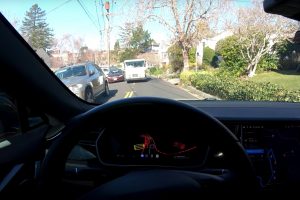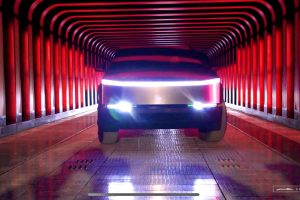- 🚗 The Tesla Model Y is close to becoming the best-selling vehicle in the U.S. through Q2 2024.
- 📉 The Ford F-150 has dropped to third in sales, with high-end trucks becoming less affordable.
- 🛢️ Electric vehicles, like the Model Y, have increased their U.S. market share to 9.0%.
- 🌍 The Model Y previously became the world’s best-selling car, and it may soon achieve this in the U.S. as well.
- 🔋 The growth indicates a shift in preference from combustion-powered to battery electric vehicles.
As the automotive landscape continues to evolve, the Tesla Model Y is on the brink of achieving something remarkable. It is just inches away from becoming the best-selling vehicle in the United States through the second quarter of 2024. This shift not only highlights the growing acceptance of electric vehicles (EVs) but also signals significant changes in consumer preferences. In this post, we’ll delve into the reasons behind this market shift, the factors contributing to Tesla’s unprecedented success, and what the future holds for the car industry.
The Tesla Model Y: America’s Favorite?
The Tesla Model Y’s rise in popularity is not just a fluke. It represents a broader market trend favoring electric vehicles and sustainable choices.
Factors Driving Model Y’s Success
- Affordability and Value:
- The Model Y offers a balance of price, features, safety, and utility, making it an attractive option for many buyers.
- High Consumer Interest and Trust:
- Tesla’s brand reputation for innovation and quality attracts a growing base of loyal customers.
- Sustainability Trend:
- As environmental concerns grow, consumers are more inclined to choose electric over traditional combustion-powered vehicles.
Analyzing the Decline of the Ford F-150
For decades, the Ford F-150 has been the top-selling vehicle in the U.S., synonymous with American utility and power. However, it has slipped to the number three position.
Reasons Behind the Decline
- Rising Costs:
- The increasing price tags on high-end trucks, sometimes exceeding $100,000, make them less attainable for the average consumer.
- Changing Preferences:
- The trend towards electric and more sustainable options is pulling attention away from traditional pickups.
- Economic Factors:
- Economic challenges can make consumers hesitant to invest in expensive vehicles.
The Broader Impact on the U.S. Automotive Market
The U.S. auto market is witnessing a significant shift, and Tesla’s gains underscore this transition.
Growing Electric Vehicle Market Share
- The market share for battery electric vehicles has increased significantly, now standing at a record 9.0%.
Implications of Market Transformation
- Increase in EV Adoption:
- A larger adoption rate of EVs is expected as infrastructure for charging stations continues to improve.
- Decline in Internal Combustion Vehicles:
- Traditional combustion-powered vehicles might see a further dip in demand as more models become non-electric.
- Regulatory and Environmental Influences:
- Government regulations favoring sustainable and eco-friendly transport solutions provide legislative backing to this market evolution.
The Future of Vehicle Sales in America
Tesla’s potential achievement as the leading seller paints a clear picture of the future. Companies will need to innovate and adapt if they aim to remain relevant.
- Continued Innovation: The focus will intensify on technology advancements within the EV market, enhancing features like battery life and autonomous driving capabilities.
- Competitive Landscape: While Tesla leads the way, traditional automakers are investing in EV technology to capture market share, making the industry more competitive.
Conclusion
The pending triumph of the Tesla Model Y as America’s best-selling vehicle is more than a statistic. It is a manifestation of changing eras—where sustainability meets consumer desire, affordability, and cutting-edge technology. As we move further into 2024, the trends imply a dynamic and exciting future for automotive innovation, transforming the way we perceive mobility.





